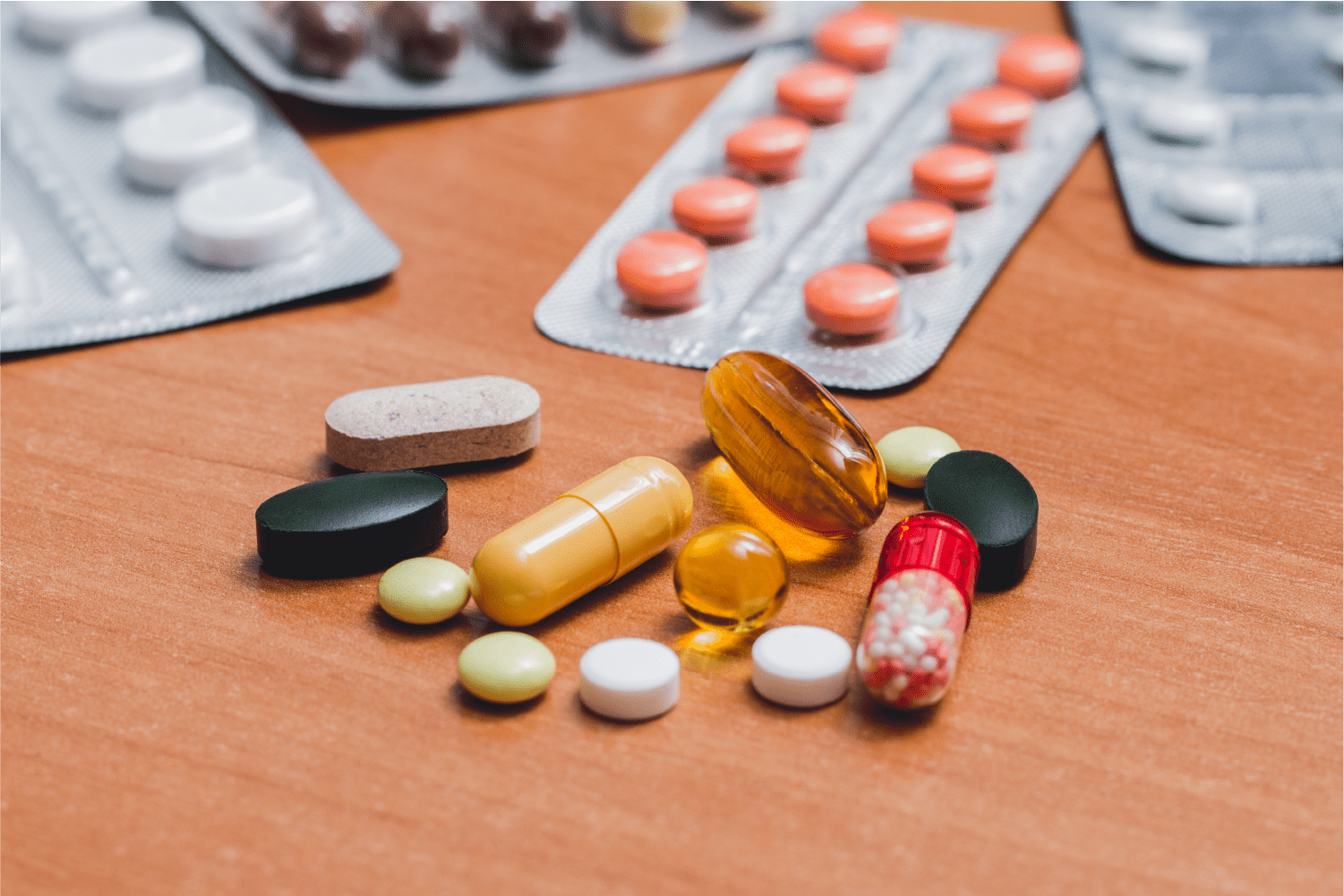COVID-19 Risk Factors – Others: Immunosuppressed Individuals


There are certain immunosuppressed factors that put particular groups of people at higher risk of experiencing severe disease if infected by SARS CoV-2. Click here for an overview.
Demographics and underlying health conditions are two major categories, but there are other factors that increase your risk.
These include:
- HIV/AIDS
- Smoking
- Immunosuppressed Individuals
- Environment
This article covers immunosuppression.
What does it mean to be immunocompromised?
To be immunocompromised is to have a weakened or poorly functioning immune system. There are a number of reasons why a person may become immunocompromised. In general, immunosuppression can either be primary or secondary. Individuals may be born immunodeficient; this is a form of primary immunosuppression. Secondary immunosuppression happens when an individual acquires short or longer-term immunodeficiency after certain infections, medication or by consuming a poor diet. We have covered topics such as poorly managed HIV and cancer treatment elsewhere. A poorly functioning immune system will be less able to fight infections, such as COVID-19.
If you are born immunodeficient, you will probably be reasonably adept at managing and limiting your exposure to potential infective agents. If you are on any medication or have undergone a medical procedure recently which makes you immunocompromised, you should be in regular contact with your healthcare provider. They will be able to determine how vulnerable you are to acquiring severe or critical COVID-19 symptoms and advise you on which steps you should take to reduce your chances of catching this, or any other, infection.
Immunosuppression and COVID-19
Unlike the clear negative effects of obesity or cardiovascular disease, the data on the effect of immunosuppressant medications on COVID-19 to date, is unclear. A review suggests that unlike other viral infections (such as influenza, norovirus, adenovirus and rhinovirus), the family of coronaviruses do not result in more severe disease in those who are immunocompromised than the general population. This has been based on preliminary work on COVID-19, as well as previous studies looking at other coronaviruses such as SARS and MERS. Despite this, the Center for Disease Control and Prevention (CDC) lists the immunocompromised amongst those who are most vulnerable to COVID-19 complications.
A subgroup of patients who develop COVID-19 will experience what is known as cytokine storm syndrome. This happens when there is a pronounced inflammatory reaction resulting in the over-production of inflammatory cytokines, the factors responsible for the activity of the immune system. They have a role in the normal immune response, protecting us daily from ingested or inhaled microbes. Under normal circumstances, the activity of cytokines is regulated by other factors, allowing the immune system to function in a controlled manner. Uncontrolled inflammation due to a dysregulated or defective immune system may result in a ‘cytokine storm’. The consequence of this is hyperinflammation and it is what renders some COVID-19 patients susceptible to multiorgan failure and even death.
Patients who experience severe or critical symptoms of COVID-19 can benefit from the use of corticosteroids. Other immunosuppressants which have been used for the treatment of autoimmune diseases or transplant rejection, such as biologics, have been in clinical trials for the treatment of COVID-19. An example is the drug Tocilizuimab, which is currently used for the treatment of arthritis. Finding the critical window for administering immunosuppressants for COVID-19 is key, as they will help dampen the state of acute inflammation.
The below sections will go through the various immunological reasons that can place individuals at a higher risk of severe infection with the SARS-CoV-2 virus.
Pharmaceutical immunosuppression
Immunosuppressant medications are a class of drugs that function to reduce or inhibit the activity or function of the immune system. These drugs are often prescribed to individuals who have an overactive immune system due to an autoimmune disease or other inflammatory conditions . They are also used as a precursor to certain medical procedures such as bone marrow transplantation. Immunosuppression can also occur as an off-target side effect of the chemotherapy given to cancer patients.
- Corticosteroids. These are a class of synthetic steroid hormones. Examples include prednisone and dexamethasone. They work primarily to dampen or inhibit inflammation. The dosage and length of treatment is limited by significant side effects. Interestingly, some corticosteroids, such as Dexamethasone and hydrocortisone have actually been shown to improve mortality in severe or critical cases of COVID-19, as described above.
- Antibodies. These are a class of molecules that bind to and inhibit the activity of specific immune modulators. Examples include anti-TNFa therapies (eg. infliximab, etanercept, adalimumab) that are used to treat a range of autoimmune diseases such as rheumatoid arthritis, psoriasis, systemic lupus erythematosus (SLE) and Crohn’s disease.
- Cell cycle inhibitors. These are drugs that reduce cellular division and activity. They are used to treat or manage autoimmune diseases and cancer, and prevent transplant rejection. Examples include calcineurin inhibitors (cyclosporin and tacrolimus), and methotrexate.
- Nucleotide synthesis inhibitors. This class of drugs inhibits DNA synthesis. Examples include azathioprine, mycophenolate and leflunomide which are used to treat a variety of autoimmune diseases and limit the risk of transplant rejection.
- Chemotherapeutic agents. In general, chemotherapeutic drugs interfere with cellular division or DNA synthesis, either directly or indirectly There are multiple types and forms, including anti-tetracyclines (eg. doxorubicin), antimetabolites (eg. 5 fluorouracil), and mitotic inhibitors (eg. pacitaxel). Whilst the aim of chemotherapy is to slow down or kill actively dividing cancer cells, they also have off target effects on dividing bone marrow cells, which are a source of red blood cells that are necessary to fight infections. Certain chemotherapies are also used to ablate the bone marrow before stem cell or bone marrow transplantation.
Non-pharmaceutical immunosuppression
- Primary immunodeficiency (PI). The inheritance of defective genes, or mutations, responsible for regulating aspects of the immune system may result in PI. These mutations are either passed from generation to generation, or they can occur for the first time in an infant without prior family history. There are over 300 types of genetic defects that cause PI, but they are all considered rare. Approximately 0.2% of the US population has PI; however the frequency in other parts of the world is less clear, particularly as there are no current national screening programmes for PIs. Examples of primary immunodeficiency include Severe Combined Immunodeficiency (SCID) and Wiskott-Aldrich syndrome (WAS).
- Secondary immunodeficiency. The most common cause of non-pharmaceutical immunodeficiency worldwide is malnutrition, followed by other factors such as HIV/AIDS.
- Malnutrition: The inadequate availability of macronutrients or micronutrients from dietary sources leads to immune deficiency and increases susceptibility to infections. A shortage of protein, and other essential nutrients such as vitamin A, vitamin E, folate, zinc, and iron is a common cause of secondary immunodeficiency and affects up to 50% of impoverished communities. Infections occur more frequently in those individuals due to a lack of a functional immune system and an insufficient gut microbiome. To be protective the gut microbiome relies on dietary forms of fibre and other essential nutrients for balance.
Malnutrition can also occur in the developed world as a consequence of obesity, often as a result of increased adoption of a Western-style diet, or due to the consumption of large quantities of alcohol.
The consumption of a high-fat/low-fiber diet that also lacks essential nutrients, compromises gut health and absorption, and leads to chronic inflammation, immune dysregulation, and increased risk of infections. Alcohol reduces the quantity of beneficial bacteria in the gut that aid in normal gut function and nutrient absorption. Alcohol can also damage the lining of the stomach and resident immune cells that protect the lining of the gut. This puts individuals in an immunocompromised state because they are unable to efficiently absorb nutrients from the diet, and are less protected by the microbiome and resident immune cells. Indeed, chronic alcohol consumption has been linked to a number of immune-related disorders such as sepsis, acute respiratory distress syndrome (ARDS), and poor wound healing.
- Radiation: some cancer therapies necessitate radiation. Local radiation, for example, the type directed to the breast, is unlikely to weaken your immune system. Individuals who require radiation to the bones, either because of cancer of the bone marrow or due to metastatic cancer, are more likely to have a compromised immune system after therapy. The large bones of the body are home to the bone marrow which is responsible for the generation of viable red and white blood cells necessary to protect the body from infections. This immune system compromisation is usually a temporary condition which will be corrected once radiation has stopped and the body has had a chance to regenerate bone marrow cells.
I am immunosuppressed, what should I do?
It is strongly recommended that patients undergoing immunosuppressant treatment remain under continuous surveillance at this time.
If you are immunosuppressed for any reason, you are advised to adopt strict self-isolation and minimise your interactions with others during this critical period.
It is common for individuals with autoimmune diseases, particularly ones affecting mobility or self image such as arthritis, spondylitis, and psoriasis, to be less active and seek comfort with unhealthy dietary choices. The acquisition of autoimmune disease is highly associated with hypertension and obesity, further increasing one’s risk of responding severely to infection by SARS CoV-2. Consuming a balanced diet and staying as fit and healthy as your body and situation allows helps with COVID-19 risk factor mitigation, and aids with recovery if you have had chemo or radiotherapy. Individuals who are otherwise compromised due to malnutrition may improve their condition by being aware of their state, asking for help to supplement their diet where possible and affordable, and by limiting alcohol consumption and improving their diet. l
Sources:
- D’Antiga, Lorenzo. “Coronaviruses and Immunosuppressed Patients: The Facts During the Third Epidemic.” Liver Transplantation, vol. 26, no. 6, 20 Mar. 2020, pp. 832–834., doi:10.1002/lt.25756.
- Jose, Ricardo J, and Ari Manuel. “COVID-19 Cytokine Storm: the Interplay between Inflammation and Coagulation.” The Lancet Respiratory Medicine, vol. 8, no. 6, 1 June 2020, pp. E46–E47., doi:10.1016/s2213-2600(20)30216-2.
- Kewan, Tariq, et al. “Tocilizumab for Treatment of Patients with Severe COVID–19: A Retrospective Cohort Study.” EClinicalMedicine, 20 June 2020, p. 100418., doi:10.1016/j.eclinm.2020.100418.
- Mehta, Puja, et al. “COVID-19: Consider Cytokine Storm Syndromes and Immunosuppression.” The Lancet, vol. 395, no. 10229, 13 Mar. 2020, pp. 1033–1034., doi:10.1016/s0140-6736(20)30628-0.
- Monti, Sara, et al. “Clinical Course of COVID-19 in a Series of Patients with Chronic Arthritis Treated with Immunosuppressive Targeted Therapies.” Annals of the Rheumatic Diseases, vol. 79, no. 5, 2 Apr. 2020, pp. 667–668., doi:10.1136/annrheumdis-2020-217424.
- “People Who Are at Higher Risk for Severe Illness.” Centers for Disease Control and Prevention, Centers for Disease Control and Prevention, 14 May 2020, www.cdc.gov/coronavirus/2019-ncov/need-extra-precautions/groups-at-higher-risk.html.
- Vakil-Gilani, Kiana, and Kenneth O’Rourke. “Are Patients with Rheumatologic Diseases on Chronic Immunosuppressive Therapy at Lower Risk of Developing Severe Symptoms When Infected with COVID-19?” Clinical Rheumatology, 30 May 2020, doi:10.1007/s10067-020-05184-3.













































